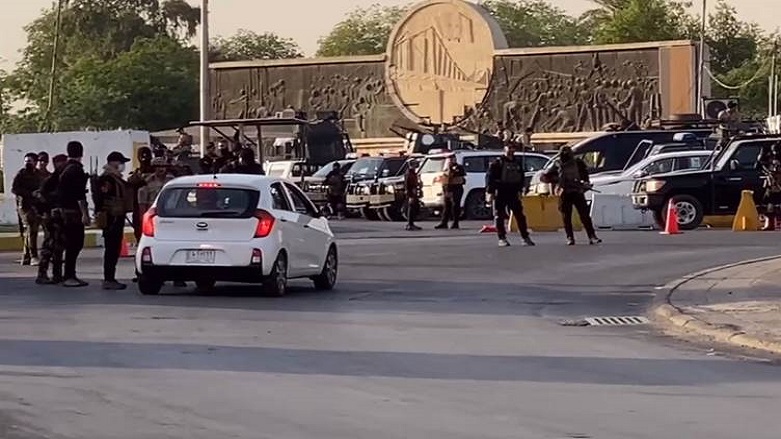PMF commander, arrested on terrorism charges, released by Iraqi authorities

ERBIL (Kurdistan 24) – A top commander of the Hashd al-Shaabi (Popular Mobilization Forces) in Iraq was released on Wednesday after a judge found insufficient evidence to support terrorism charges against him.
Qassim Musleh, head of Anbar Operation Command of the Shia-majority PMF, was arrested by Iraq’s elite forces on May 27 on charges linked to the killing of two prominent civil society activists in the southern province of Karbala.
After his release on Wednesday Musleh was seen among his fellow PMF fighters and supporters, according to the photos and footage on social media. One video posted by a pro-PMF account appeared to show the newly released commander inside the Imam Hussien shrine in Karbala, surrounded by supporters.
قائد عمليات الانبار في الحـ شد الشعبي" قاسم مصلح " من داخل الحرم الحسيني المطهر في محافظة كربلاء المقدسة #اثيل_النجيفي_باع_الموصل pic.twitter.com/2QEIi5o3VI
— ابو حسين الخفاجي 🇮🇶 (@asdiraq232) June 9, 2021
Following Musleh’s arrest, members of the militia group flocked to Baghdad's Green Zone, housing the elite Iraqi Special Forces headquarters as well as Prime Minister Mustafa al-Kadhimi’s office, to demand his release.
Civil society activists and international partners of Iraq supported the government’s move in a bid to promote accountability for the perpetrators of crimes committed against protestors and activists.
In October 2019, a wave of protests erupted in Iraqi provinces motivated by the failure of the government to deliver public services, high unemployment, and Iraq’s perceived lack of willingness to stop foreign meddling in the country.
More than 400 protesters have been killed since 2019 and nearly 7,000 others were injured by security forces and militias with links to Iran, according to civil society activists and international observers.
Despite Iraqi officials’ promises to investigate the killings and abductions of demonstrators and protest leaders, the United Nations Assistance Mission for Iraq said in its most recent report that it was unable to identify any judicial probes into crimes against protesters that had resulted in a trial or prosecution.
Recently protesters have shifted their focus to demanding accountability, raising banners saying “Where’s my killer?” or “Who killed me?” in demonstrations across the country.
Editing by Joanne Stocker-Kelly